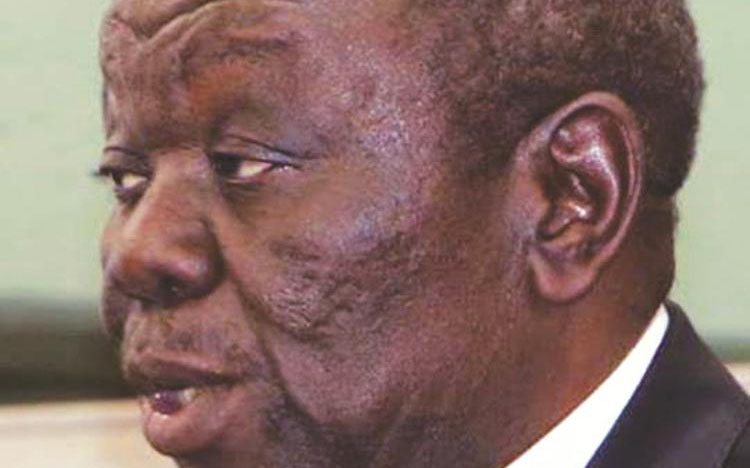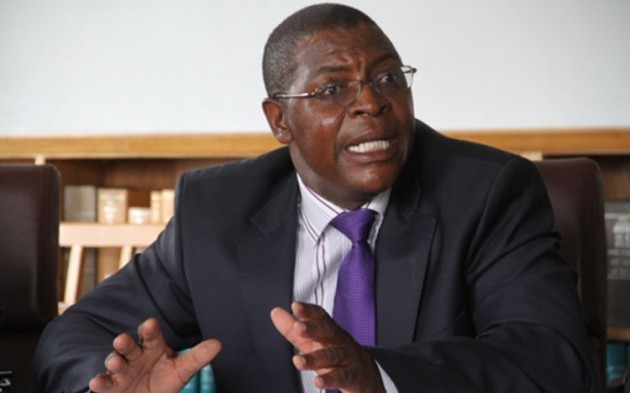Coalition politics challenges

Reason Wafawarova on Tuesday
THE signing of Memoranda of Understanding between the MDC-T and its MDC splinter formation led by Prof Welshman Ncube, and also the newly-established Zim-PF splinter outfit going by the name NPP, led by deposed former Vice President Joice Mujuru has aroused interest among Zimbabweans, especially those sympathetic to opposition politics.
But this interest could as well be just dust in the air.
It is hard to imagine that splinters can rejoin to form something stronger than the original block from which they splintered, and in this sense the coalition between Morgan Tsvangirai and Welshman Ncube can only be a mending of two badly damaged parts of a block at the very best.
Literally Ncube’s party could not even secure a council seat in the 2013 general election, and the Tsvangirai led outfit had its worst electoral performance ever since its debut challenge in 2000. The collective efforts of the two splinter parties remain a pea standing next to Mount Zanu-PF.
Ncube’s MDC outfit managed 10 parliamentary seats in 2008, and coming out with nothing in 2013 was simply the definition of extinction of political relevance. It is like the MDC-T at its struggling weakest is merging with the nothingness left of its splinter group.
The fact is that the majority of the people that once made up the Ncube-led MDC tracked their way back to the MDC-T a long time ago, and as such there is just no evidence to suggest the existence of meaningful numerical value in the said coalition between Ncube and Tsvangirai.
As for Joice Mujuru’s party, the less said about it the better. The leader is clearly hankering for readmission into Zanu-PF, and the only ‘ideology’ behind this political formation is bitterness. After the bitter split from Zim-PF, the NPP cannot logically expect Zimbabweans to take Mujuru and her colleagues seriously.
This is something Dr Mujuru is well aware of, and she has publicly admitted that no party in Zimbabwe matches the Zanu-PF mobilisation machinery, not even the MDC-T she passionately pretends to admire.
She is simply bedding Morgan Tsvangirai for elusive political relevance, which unfortunately is fast declining for Tsvangirai himself. This can hardly be the foundation of a successful coalition.
By their general nature coalitions are prone to instability, and what we are seeing in Zimbabwe right now will not be an exception.
Welshman Ncube does not take Morgan Tsvangirai seriously from an intellectual perspective and he has made that point very clear in the past. That entrenched perception cannot simply be signed away on an MoU piece of paper.
The fact is that Morgan Tsvangirai has done worse of the reasons that caused the walking away of people like Ncube during the 2005 split. What Tsvangirai says he regrets about the split are not his increasing shortcomings, but the resultant political failures emanating from the split.
Apart from the fear of facing Zanu-PF after the 2013 electoral humiliation there is just no other reason why Ncube has agreed to sign an MoU with a man he so immensely despises in public.
Ncube simply thinks he can secure another backdoor entry into government the way he did with the so-called Global Political Agreement in 2009. Had it not been for the two words “Handidi, Angifuni” by President Mugabe Ncube could have secured the deputy premiership of the country on the backdrop of a mere 10 parliamentary seats. He is man far too aware of the miracles coalition politics can perform, save that this is hardly going to be a coalition.
As past efforts have proven for Zimbabwe, it is not easy to form coalitions, and it is even harder to maintain them. It is going to be harder for the parties signing these MoUs to move to the next stage of defining the pragmatics and practicalities of the proposed coalition.
The essentially pragmatic issues are less concerned about contesting elections as united front against Zanu-PF than they are about ambitions, egos and personal interests of the leaders involved — the majority of whom are largely failed characters from, however, many the number of angles one might want to look at things.
To suggest that the teaming of a party like the NPP with MDC-T could result in winning national elections hardly rises to the level of nonsense.
True the coalition will halt and prevent the splitting of the opposition vote, which in reality is a collective losing vote anyway.
Here is the analytical reality of it all. Apart from consolidating the losing opposition vote into one grand loss against ZANU-PF there is nothing else to expect from the coalition of the MDC-T and however many small political parties might agree to visit Morgan Tsvangirai’s residence for signing of MoUs.
Coalitions in principle have to be effective and successful, and they have been in certain cases like what happened in Kenya in 1992, and in India too.
Done well coalitions can facilitate democratic participation. But we already know that there are many in the MDC-T party that are opposed to these MoUs, and the NPP recently had its top officials fist fighting in public over the same coalition proposals.
It is just hard to believe that the kind of coalition we are seeing in Zimbabwe can in any way facilitate democratic participation on the party of members of the opposition, who are evidently not acting in unanimity.
This seems to be more about Morgan Tsvangirai, Welshman Ncube and Joice Mujuru as individuals scared of imminent defeat at the hands of ZANU-PF than it is about the collective position of members of the political parties involved.
Successful coalitions result in greater transparency if the parties involved have mutual respect one for another. But this seems to be all about Tsvangirai’s seeming desperation for endorsement as the coalition’s only capable presidential candidate than it is about respect for the other parties.
There was virtually no respect for Dydimus Mutasa when he professed his support for Morgan Tsvangirai at a public gathering earlier this year, support that he has since withdrawn in dramatic fashion.
Successful coalitions result in less corruption, greater justice and more accountability, only if the coalition partners have mutual respect one for the other; not when they are brought together by convenience or political expediency, as seems to be the case with the Zimbabwe opposition at the moment.
The opposition is rather advised to engage Zanu-PF in electoral competition as opposed to a power contest. It is easier to defeat a revolutionary party like Zanu-PF in an election than it is in a power contest. Only the mobilisation of the vote will defeat Zanu-PF, not the combining of power forces.
If at all this proposed coalition were to assume the possibility of a threat to Zanu-PF, the only result foreseeable would be a renewal of the resolve to win on the part of Zanu-PF. Without taking away the massive weaknesses and ills currently bedevilling the ruling party, including lack of seriousness in certain core aspects of governance; the reality remains that Zanu-PF has the capacity to engage into a higher gear if the race demands so. Like Joice Mujuru has indicated, the party’s mobilisation capacities are unquestionable and unparalleled in the country.
If we had a snap election today, Zanu-PF would march to unquestionable victory with its vociferous factions publicly throwing punches at each other. The victory could only be bigger and sweeter if Zanu-PF were to be pushed into a corner by the pressures of a threatening coalition.
There was a time when the MDC was on the rise and Zanu-PF seemed to be on the decline, the way the ANC seems to be on the decline in South Africa today, or the way Unip declined in Zambia, Kanu in Kenya, or the Congress Party of India, never to rise again.
Clearly Zanu-PF has since made massive inroads among the youthful generation in Zimbabwe, and at the same time the MDC formations in their collectivity have visibly struggled to maintain the momentum the opposition started with in 1999.
Many MDC supporters are more convinced that Zanu-PF should be pushed out of power than they are that the MDC will push the ruling party out. There is more unanimity against the shortcomings of Zanu-PF than there is in support of the strengths of Morgan Tsvangirai and the political outfit he leads.
Without coalition the MDC-T has always provided myopic manifestos to the electorate, and with the coalition long-term developmental goals are likely to be sidelined for immediate political gain. In other words the situation will even get worse.
The 2018 election will be reduced to who will play what role in the unlikely event that Zanu-PF loses the election, and there will be next to nothing in terms of long-term developmental policies.
The coming together of sworn enemies like Ncube and Tsvangirai is practically a manifestation of narrower primordial interests like ethnicity, region, language, personal ambition and so on.
In the unlikely event of an agreement in choosing one coalition opposition presidential candidate, the arrangement is likely to be unstable. The coalition would essentially stumble at the whims and fancies of the coalition partners.
Characters like Tendai Biti are often dramatic and imposing, and we are likely to see a lot of disagreements even on how to run the campaign.
It is not easy to figure out how an ideologically driven revolutionary party like Zanu-PF can be removed by a coalition of partners without an ideology.
If anything, the more we hear about coalition talks between opposition forces in Zimbabwe the more we are likely to see high entropy and none-dependableness.
The wild egos of the opposition leaders in Zimbabwe cannot be tamed by the simple fancifulness of the idea of a coalition, hyped as the idea might increasingly become.
The reality of our politics at the moment is that the divided collective vote of the opposition is simply not big enough to defeat Zanu-PF. No amount of coalition happiness or enthusiasm is likely to change that; unfortunately.
The coalition efforts themselves are a confirmation that the ruling party is the biggest political party in the country, and that there is no leader or political party capable of wrestling power from Zanu-PF as currently comprised.
In other words the coalition efforts are an emphatic endorsement that the Zanu-PF presidential candidate is the most popular in the country, and that Zanu-PF as a party is indispensable by any of the existing political parties in their own right.
Zimbabwe we are one and together we will overcome. It is homeland or death.
Reason Wafawarova is a political writer based in SYDNEY, Australia.








Comments